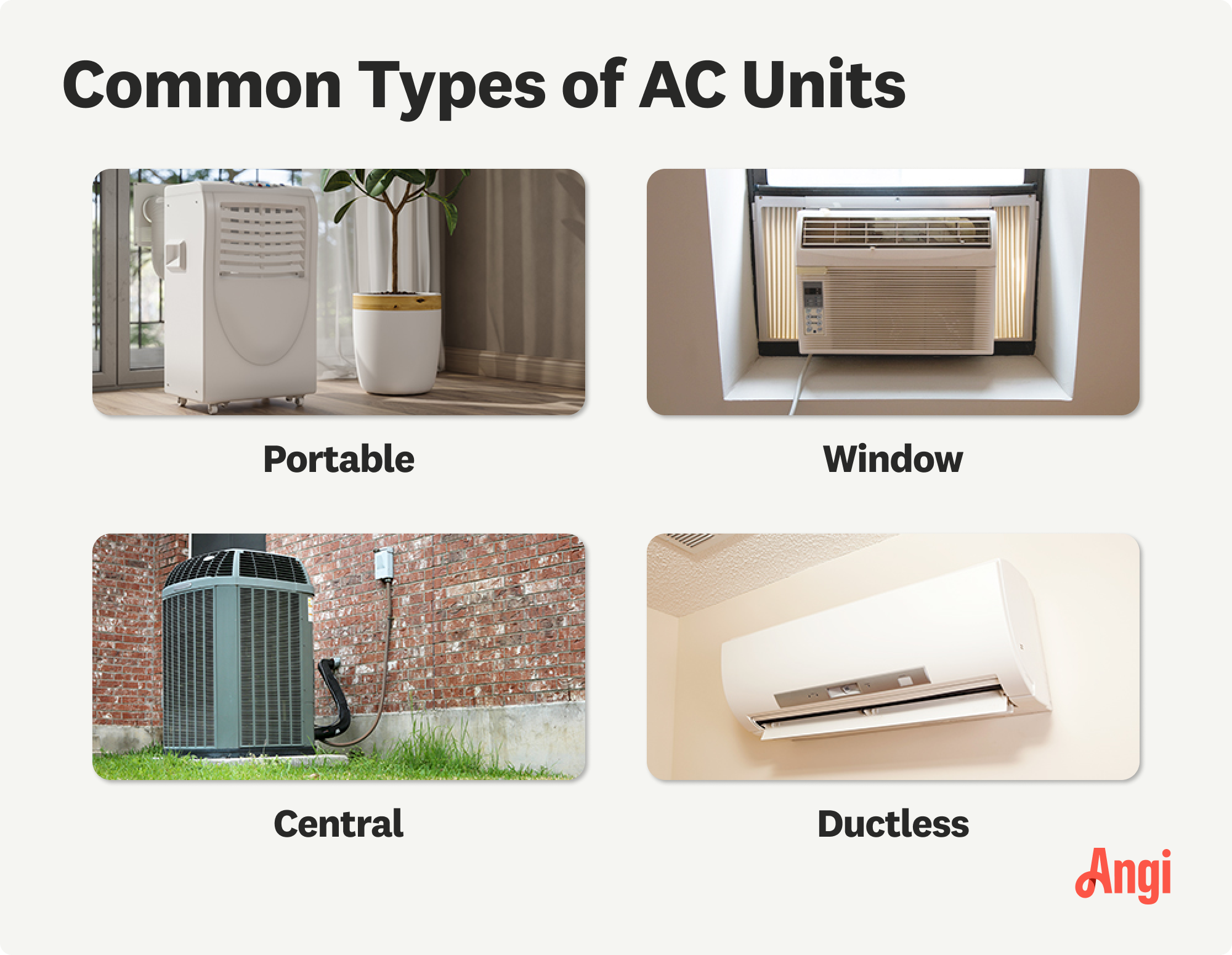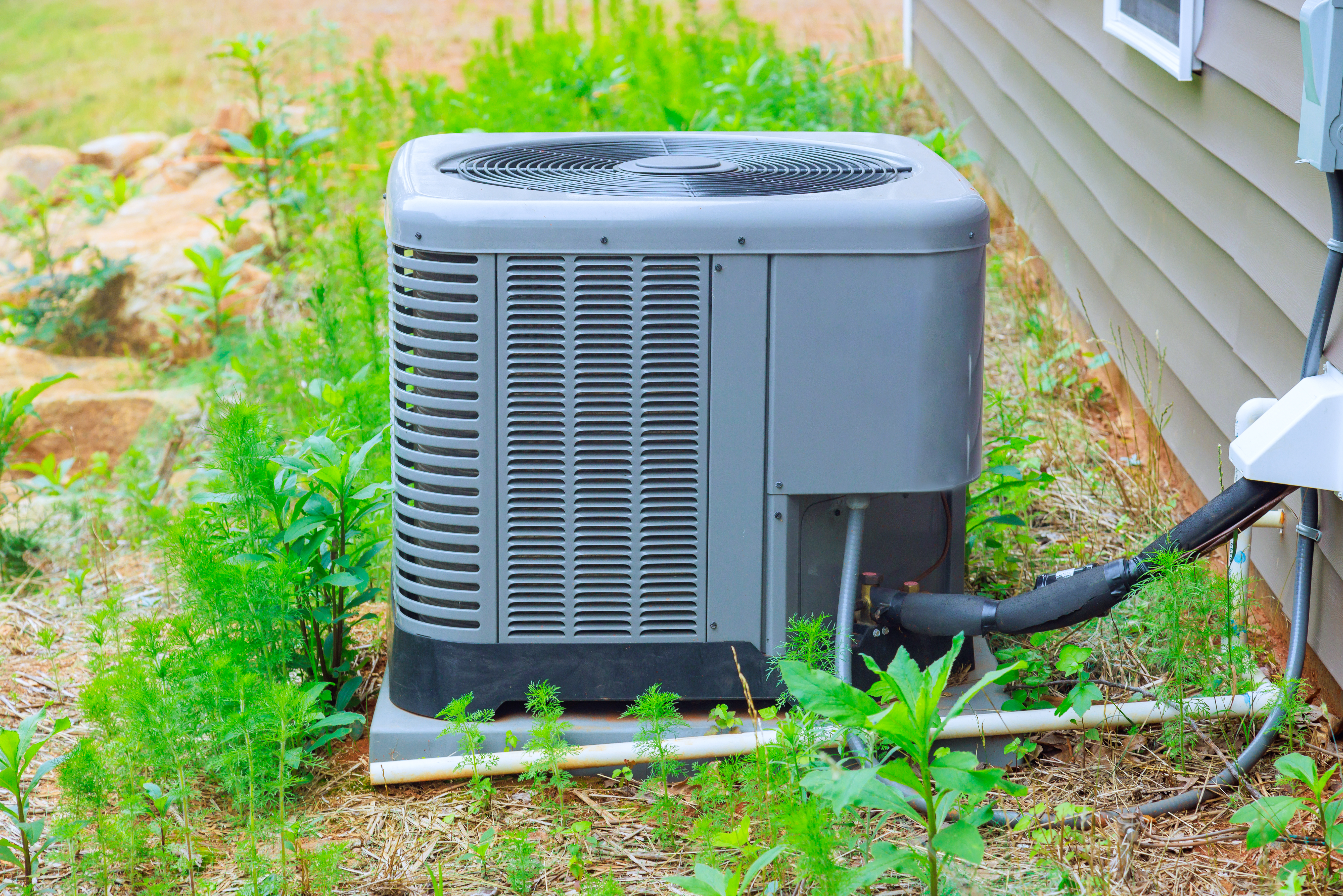
When your window AC isn’t cutting it, but central AC is too expensive, installing a new ductless mini-split AC may be the cooling solution you’re looking for. Find out what a mini-split costs and how to hire the right pros to get the job done.
Heating and air conditioning service costs depend on your project and location. Check with a local pro for your specific job.
The type of AC unit you choose has a big impact on your AC replacement costs in Baltimore, Maryland.
Window and portable AC units are the most cost-effective options, while central AC is pricier.
Your project costs will also depend on the size and efficiency of your air conditioner.
For most types of AC units, it’s best to hire a Baltimore HVAC professional for installation.
To stay cool in Baltimore’s hot and humid summers, you’ll want a reliable air conditioner. If yours needs an upgrade, you can expect to spend an average of $6,114 on AC replacement costs in Baltimore, Maryland. However, depending on the type, size, and efficiency rating of your AC unit, you could pay between $4,122 and $8,119.
Not sure how much to budget for new AC in Baltimore? Here are the main factors that will affect your project costs.

You can choose from several types of AC units in Baltimore, which vary in price from a few hundred dollars to several thousand. Window units, for example, start around $150 and are a good option for small spaces and homes without ductwork. Central AC is much more expensive—ranging from $2,500 to $4,500—but provides cooling for your whole house.
| AC Type | Average Unit Cost | Pros | Cons |
|---|---|---|---|
| Portable unit | $100–$500 | Can be stored in winter | Noisy |
| Window unit | $150–$800 | Doesn’t require floor space | Blocks part of your window |
| Ductless split system | $2,000–$3,000 | Energy efficient | Limited cooling range |
| Central | $2,500–$4,500 | Works throughout your home | Needs ductwork |
Your AC unit’s size also influences your overall costs. Bigger sizes—measured in either AC tonnage or British Thermal Units (BTUs)—remove more heat per hour, so they’re more effective at cooling your space. As a result, they’re also pricier than smaller units.
BTU, or British Thermal Unit, is a unit that measures how much energy it takes to raise the temperature of one pound of water by one degree Fahrenheit. For heat pumps, each ton of capacity is equivalent to roughly 12,000 BTUs.
To figure out the right size AC unit for your Baltimore home, you’ll need to conduct a Manual J calculation. It’s a complicated formula that takes into account a number of factors, including your property’s size, insulation quality, sun exposure, and more, so it’s best to leave this to a professional.
| AC Tonnage | BTUs | Average Unit Cost |
|---|---|---|
| 1.5 | 18,000 | $1,300–$4,000 |
| 2 | 24,000 | $1,500–$5,000 |
| 3 | 36,000 | $2,000–$5,500 |
| 4 | 48,000 | $2,600–$6,200 |
| 5 | 60,000 | $2,800–$6,800 |

An air conditioner’s Seasonal Energy Efficiency Ratio (SEER) or SEER2 rating is another factor that impacts its price. These ratings measure how efficiently an AC unit uses power to cool your home. A higher rating translates to better efficiency, but also higher prices.
Today, there are minimum SEER and SEER2 rating requirements in place across the U.S., which vary by region. When you buy a new air conditioner in Baltimore, it must meet the following HVAC efficiency standards:
| Size of AC Unit | Minimum SEER Rating | Minimum SEER2 Rating |
|---|---|---|
| Less than 45,000 BTUs | 15 | 14.3 |
| Equal to or more than 45,000 BTUs | 14.5 | 13.8 |
The accessibility of your air conditioner is something else to consider when budgeting for AC replacement costs in Baltimore. For example, say part of your ductwork is in a crawl space or your outdoor AC unit is on your home's roof. In cases like these, your contractor may need extra time or equipment to access those hard-to-reach places. If that happens, they could increase their labor rates.
On top of the actual AC unit, there are a few other costs to be aware of when replacing an air conditioner in Baltimore, including labor and permits.
You’ll need a licensed contractor or AC installation pro to perform any mechanical work (including replacing an air conditioner) in Baltimore. When you hire a pro to install your new AC unit, you should confirm that they have a valid license from the Maryland Board of HVACR Contractors. Working with refrigerants also requires a certification from the Environmental Protection Agency (EPA), so make sure they have that as well.
You must get a permit from the city to change, install, or replace any HVAC or refrigeration system. When you hire an HVAC pro in Baltimore, they should pull the permits on your behalf, but you should confirm this before they start working on your system.
It’s easy to overlook, but you’ll also want to consider sales tax when budgeting for a new air conditioner, especially if you’re buying a higher-priced AC unit. In Baltimore, the sales tax rate is 6%, which would add an extra $240 to a $4,000 central AC system.
If you’re a Baltimore Gas and Electric (BGE) customer, you can get a rebate for upgrading to a more energy-efficient cooling system. For example, you can get $300 or more back after you install a central AC system with a SEER2 rating of at least 15.2.
Replacing an old or inefficient air conditioner is an upgrade that many Baltimore homebuyers will appreciate, especially if the new unit has a high SEER or SEER2 rating. These higher-efficiency models are more attractive to buyers because they require less electricity and can help them save on their energy costs.
That said, it’s also important to have a solid heating system in Baltimore, where winters are cold and snowy. Because of this, it’s worth considering replacing your furnace or boiler when installing a new AC unit. This type of HVAC upgrade can increase your home’s value by 5% to 7%.
Home is the most important place on earth, which is why Angi has helped more than 150 million homeowners transform their houses into homes they adore. To help homeowners with their next project, Angi provides readers with the most accurate cost data and upholds strict editorial standards. We survey real Angi customers about their project costs to develop the pricing data you see, so you can make the best decisions for you and your home. We pair this data with research from reputable sources, including the U.S. Bureau of Labor Statistics, academic journals, market studies, and interviews with industry experts—all to ensure our prices reflect real-world projects.
Want to help us improve our cost data? Send us a recent project quote to [email protected]. Quotes and personal information will not be shared publicly.
From average costs to expert advice, get all the answers you need to get your job done.

When your window AC isn’t cutting it, but central AC is too expensive, installing a new ductless mini-split AC may be the cooling solution you’re looking for. Find out what a mini-split costs and how to hire the right pros to get the job done.

Whole-house fans can help reduce your electric bills by providing ventilation and cool, fresh air. Use this whole house fan cost guide to price out the project.

Ductwork repair costs vary by the type of fix needed and the materials involved. The duct's location and accessibility also impact pricing.

Thinking about installing a heat pump in your home? Learn about the different types of heat pumps and the options you can choose from in this guide.
How to clean your air conditioner depends on the unit type. Sometimes, a good hose-down is all you need if you have centralized AC. This guide can help with the cleaning process.

You’ll need to get creative if you want to run your portable AC in a windowless room. Here’s how to vent a portable air conditioner without a window.